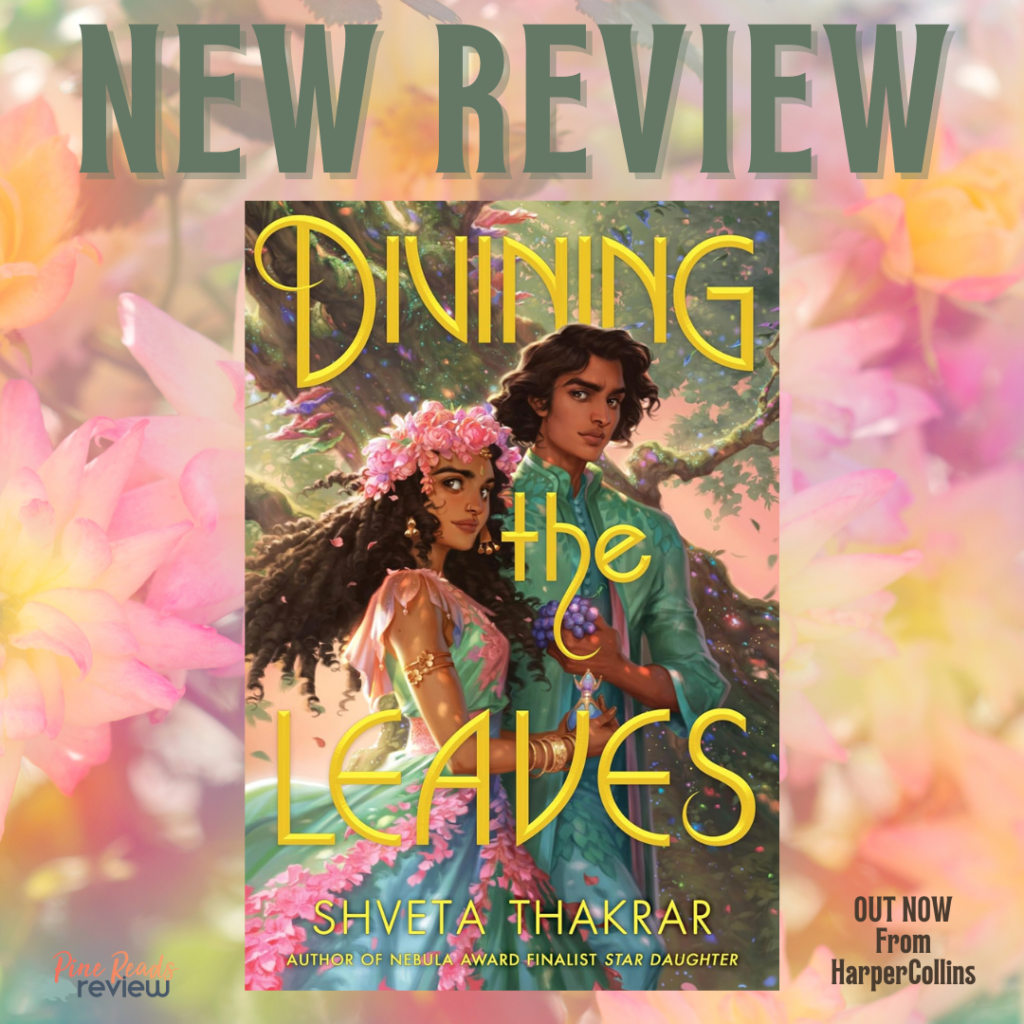
Divining the Leaves out now from HarperCollins; 416 pages
Content Warning: Violence
About the Author: “Shveta Thakrar is a part-time nagini and full-time believer in magic. Her work has appeared in a number of magazines and anthologies, including Enchanted Living, Uncanny Magazine, A Thousand Beginnings and Endings, and Toil & Trouble. Her debut young adult fantasy novel, Star Daughter, was a finalist for the 2021 Andre Norton Nebula Award, and her second and third novels, The Dream Runners and the forthcoming Divining the Leaves, take place in the same universe. Her adult fantasy novella, Into the Moon Garden, is available as an original audiobook from Audible. When not spinning stories about spider silk and shadows, magic and marauders, and courageous girls illuminated by dancing rainbow flames, Shveta crafts, devours books, daydreams, travels, bakes, and occasionally even plays her harp” (Bio from author’s website).
Find Shveta Thakrar on the following platforms:
Divining the Leaves is a contemporary fantasy that shares the story of two teenagers who only want something to go their way. Ridhi is an outcast to everyone but her family because she still believes in magic. She is positive that she belongs among the forest kingdom, and spends her time waiting for the woodland spirits to whisk her away. Nilesh has all the friends he could need, but then he discovers his father’s infidelity, and his family falls apart. After getting suspended, his mother sends him to live with Ridhi—who he doesn’t get along with—and her family. As they both tumble into the world of magic, one with the hope of becoming a part of it and the other looking for a distraction, they learn that spirits aren’t always what they seem, and that they must trust each other.
Shveta Thakrar’s novel is an interesting mix of magic, Hindu and Buddhist folklore, and dual perspectives, but I found myself dissatisfied with other aspects of the book. The magical system is definitely unique, and having a mortal girl, Ridhi, learning how to turn her perfume business into something more was a great idea. I also really liked how opposed the two characters were to each other, which was established with a dynamic change in the writing style. Ridhi’s perspective has lively descriptions of the world, while Nilesh’s is sharp and lacks the vibrancy that Ridhi sees. I was genuinely relieved that this is not a love story between the two characters, and I think it did appeal to me more than I expected it to. But my difficulty with the story lies with the pacing. The first half is almost entirely exposition, and I found myself struggling to continue. I was rather confused about where the plot was going, as the description of the book says that Nilesh ends up trapped and I was expecting Ridhi to spend much of the story trying to rescue him, but this doesn’t happen until closer to the end of the story. I was presented with many different things happening at the end, and it felt hectic compared to the slower plot present throughout the rest of the story. I genuinely liked many moments throughout the novel, but the misleading synopsis and drawn out plot were not things that I enjoyed.
Pine Reads Review would like to thank SparkPoint Studio and HarperCollins for sending us an ARC in exchange for an honest review. Any quotes are taken from an advanced copy and may be subject to change before final publication.
Hannah Goerndt, Pine Reads Review Writer